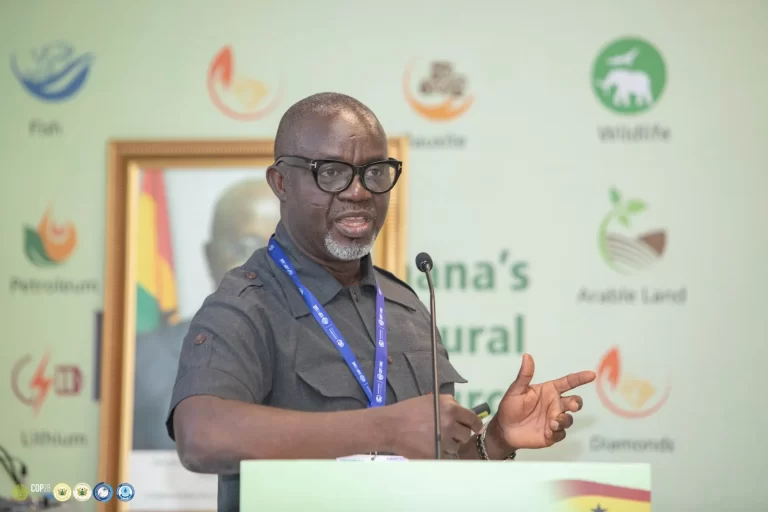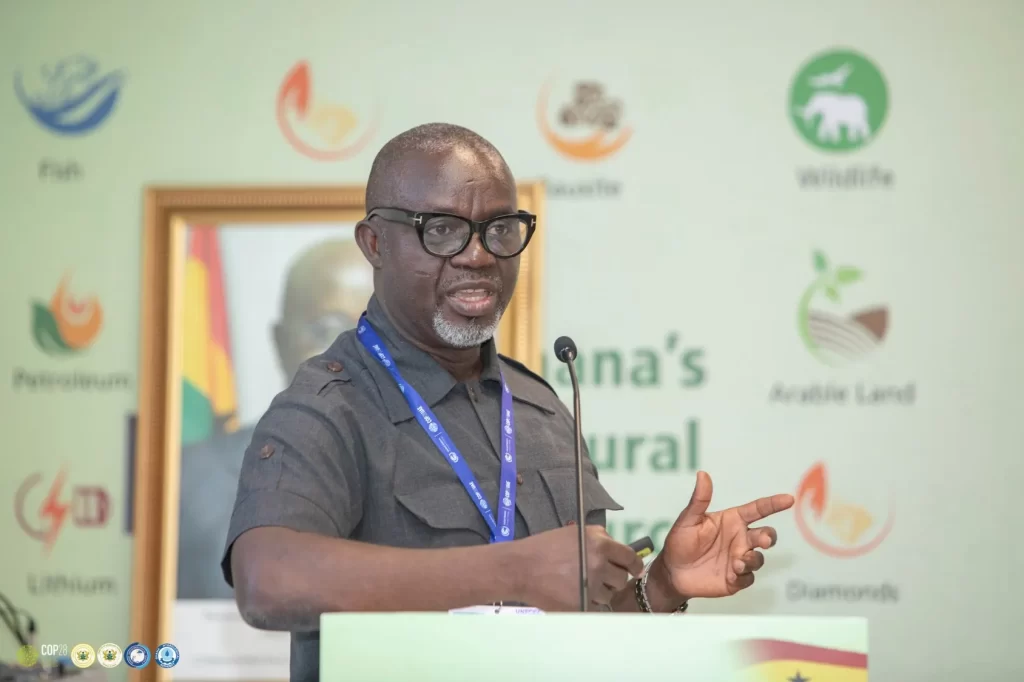

As part of ongoing activities at the Conference of Parties (COP) 28, the Ghana Meteorological Agency has hosted an event to stress the need for Early Warning and Adaptation especially among National Meteorological and Hydrological Institutions in Africa. The event which was organized on Tuesday, 5th December, 2023 under the theme “Climate Services (Weather, Climate, Water) for Early Warning and Climate Change Adaptation – The Role of National & Hydrological Services attracted key stakeholders and players in the climate sector including representatives of Parties.
Speaking at the event, the Minister for Works and Housing Honorable Francis Asenso-Boakye (MP), acknowledged the efforts of state institutions such as the Ghana Meteorological Agency and the Ghana Hydrological Authority towards advancing early warning initiatives. He underscored the indispensable nature of early warnings in minimizing adverse impacts on lives, infrastructure, and ecosystems. He further emphasized the power of anticipation and communication in empowering decision-makers to implement adaptive measures that enhance community resilience.
The Honourable Minister highlighted the ongoing collaborations towards the implementation of the Flood Early Warning Systems for the Greater Accra Region with the support of the World Bank, which is expected to provide a coordinated approach towards early warning delivery in Ghana.
The Ag. Director-General of the Ghana Meteorological Agency, Mr. Eric Asuman, provided an in-depth update on the Agency’s international collaborations with institutions such as the Danish Meteorological Institute and the National Oceanic and Atmospheric Administration towards improvement in early warning services. He further stated the GMet’s dedication to nurturing a climate-smart generation through the establishment of Green Climate Clubs in secondary schools.
Mr. Asuman noted that GMet’s recognition as the Most Efficient Other State Enterprise of the Year, was a remarkable achievement considering the challenges the Agency faces with equipment and infrastructure. He also celebrated the success of the Meteorological Awareness Month, an expansion of the customary World Meteorological Day into a month-long initiative that garnered significant attention and engagement – also as part of enhancing advocacy and weather conscious generation
Dr. Sylvester Darko of the Ghana Hydrological Authority outlined the core mandate of the authority and detailed existing early warning systems in the operations of the Authority. He provided an overview of the Volta Alarm System, emphasizing its crucial role in ensuring the safety and livelihood of communities around the Volta Lake.
He provided updates on ongoing efforts to enhance data collection and lamented the challenges faced by the authority, primarily related to the proper routine maintenance of equipment crucial for the longevity and accuracy of systems.
The event culminated in a thought-provoking panel session attended by Dr. Agnes Kijazi (Director of the Regional Office for Africa, WMO), Mr. Eric Asuman, Dr. John Kissi, Prof. Nana Ama Klutse (Vice-Chair of IPCS Working Group and Head of the Department of Physics, University of Ghana), Dr. Adrian Lema (Director of National Centre for Climate Research, Danish Meteorological Institute), and Dr. Ousmane Ndiaye (Director of Meteorology, National Agency of Civil Aviation and Meteorology of Senegal).
The panelists echoed a unified call for continuous collaboration, training, and the implementation of proven solutions and cutting-edge technologies to fortify early warning systems worldwide. The Panel admonished an active engagement in climate change conversations and advocacy for the adoption of new technologies to safeguard the climate.
